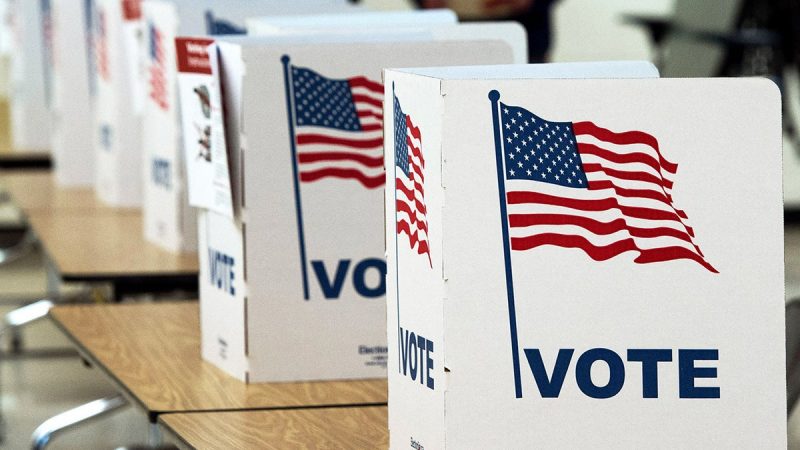Fifteen states and one U.S. territory are holding presidential primaries this evening.
President Biden only faces nominal opposition on Democratic primary ballots, and barring any surprises, could get close to securing his party’s nomination tonight.
On the Republican side, 35% of the total delegates at stake will be settled.
Former President Trump comes into the race with formidable advantages. He has six times as many delegates as Haley, and has polled well ahead of her in recent national surveys.
Haley will be hoping for an upset to make this race competitive, and even if she doesn’t, she is likely to walk away with some delegates, thanks to varying rules.
But regardless of the overall result, the vote count in certain parts of the country tonight will tell us something about Republican voters in 2024.
1. Will counties with high college-educated populations still trend Haley?
College education has been a useful indicator of Haley support so far this year.
In New Hampshire, 56% of GOP primary voters who graduated from college cast a ballot for Haley, according to the Fox News Voter Analysis. She ran about even with Trump on college-educated voters in South Carolina.
That makes these counties, which have the highest share of residents with a college degree, worth watching:
Falls Church, Virginia – 78.5%Arlington County, Virginia – 74.6%Pitkin County, Colorado – 63.1%Alexandria, Virginia – 62.1%Fairfax County, Virginia – 61.1%Four of these five counties are in D.C. suburban areas; the other is best known as the home of the luxury ski resort, Aspen.
Haley will look to run up the score as much as possible in places like these.
Conversely, the counties with the lowest college degree populations:
Loving County, Texas – 0%Kenedy County, Texas – 0.1%Hudspeth County, Texas – 0.1%Frio County, Texas – 0.1%Morgan County, Texas – 0.1%All of these areas are likely to lean heavily towards Trump.
All five of these Texas counties, predominantly in the southwest of the state, are rural counties with especially small populations.
2. Will northeast Republicans continue to buck the party trend?
Several northeastern states, including Vermont, Massachusetts, and Maine are voting today.
All three have become further out of reach of the GOP in the Trump era.
And Republican voters, particularly in the urban and suburban areas of these states, should be more favorable to Haley.
Those areas have a higher proportion of wealthy and, as discussed above, college-educated voters, who trend Haley.
Her best chance is in Vermont; a great night for her would make her competitive in the other northeastern states.
The former South Carolina governor has held events in all three in the last week.
At an event in Needham, Massachusetts, Haley brought moderate New Hampshire governor Chris Sununu along with her.
3. Can Haley win Virginia?
Haley got her first win of the primary season in Washington, D.C. on Sunday night.
Today, voters in neighboring Virginia will also have their say, giving Haley an opportunity to pick up more delegates.
The closer to D.C., the better chance Haley has to run up the vote.
In particular, look to:
Fairfax County (Rubio +15)Loudoun County (Rubio +13)Prince William County (Rubio +2)The references to Rubio in brackets show how many points the Florida Senator won each county by in 2016; Haley generally appeals to the same kinds of voters now as he did then.
Further down the state, Haley also has opportunities in Henrico County, Chesterfield County, Albemarle County, and James City.
She will need to do as much as she can in those areas, since the rest of the state contains dozens of heavily Trump-skewing, rural counties.
4. Has Trump remolded Utah?
Utah was one of Trump’s weakest states in the 2016 primaries.
His chief rival in that election, Sen. Ted Cruz, dominated statewide, with 69% of the vote and all 40 delegates on offer then.
Trump came third, after former Ohio Governor John Kasich, with 14% of the vote and no county wins.
Trump went on to win the state in the general election, but his margin shrunk by 27 points compared to Mitt Romney’s performance in the state four years prior (thanks in part to a challenge from independent candidate Evan McMullin).
He added 13 points back to his margin in the 2020 general election.
Now, in 2024, Trump is the favorite to win this primary. Watch the statewide margin to see how much the former president has been able to reshape the party.
5. How high will Trump’s margin be in rural America?
Over 2,000 counties are voting today, and 84% of them are in rural areas.
Collectively, they add up to a powerful voting bloc.
Trump has dominated with these voters since 2016, and is expected to do so again tonight.
Watch for the results in the lowest populated parts of west Texas, Alabama, and Oklahoma, especially.
Of all the Super Tuesday states, these parts of the country have skewed the most Republican in recent general elections.


